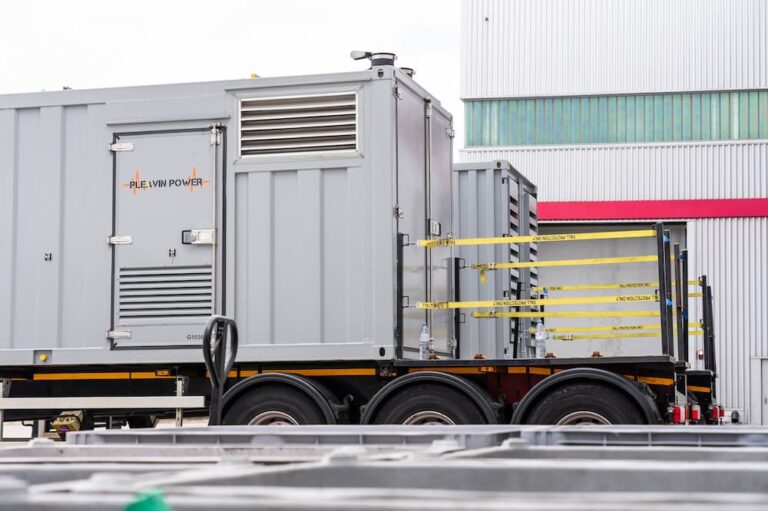When a power outage strikes, having a backup generator can be a lifesaver. However, there may be instances where your generator itself runs out of power. In such situations, it’s essential to take the right steps to troubleshoot and resolve the issue.
In this blog post, we will guide you through the necessary steps to follow if your generator is out of power. Whether you rely on it for emergency situations or as a primary source of electricity, understanding these steps can help you restore power and ensure your generator is functioning optimally.
Signs Your Generator is Out of Power
A generator is designed to provide a reliable backup power source when the electricity grid fails. However, there may be instances when your generator itself runs out of power, leaving you in the dark. It is important to recognise the signs that indicate your generator is out of power so you can take the necessary steps to resolve the issue promptly. Here are some common signs to watch out for:
- Loss of Power: The most obvious sign is when your electrical appliances and lights stop working despite the generator being on. This can occur with every type of generator, from portable generators to standby generators. If there is no power coming from your generator after you try to turn the generator on, it could indicate a fuel supply problem, a malfunctioning electrical connection, or an issue with the generator’s internal components.
- Engine Stalling: If the generator’s engine suddenly stops running or stalls frequently, it could be a sign of an inadequate fuel supply, a clogged fuel filter, or a faulty ignition system. These issues can prevent the generator from generating power effectively.
- Fuel Leaks: Check for any fuel leaks around the generator. A noticeable smell of fuel or the presence of fuel puddles around the generator indicates a problem with the fuel system. Leaks can result in a reduced fuel supply to the engine, leading to a loss of power.
- Overheating: Generators can overheat due to prolonged use, insufficient cooling, or blockage in the air vents. If you notice excessive heat radiating from the generator or if it shuts down due to overheating, it could indicate a power problem.
- Warning Lights and Alarms: Many modern generators are equipped with warning lights or alarms to indicate potential issues. Pay attention to any warning lights on the control panel or any audible alarms. These indicators can signal low fuel, check the oil pressure to see if it is low, or other problems that can result in a loss of power.
- Strange Noises or Vibrations: Unusual noises, vibrations, or rattling sounds coming from the generator can be a sign of mechanical problems. Loose or damaged components may interfere with the generator’s power output and overall performance.
What to Do If Your Generator Is Out of Power?
If you notice any of the above signs, it is crucial to address the issue promptly. Begin by checking that the fuel supply is connected to the generator properly and that the fuel levels are sufficient.
If the problem persists, consider contacting a professional generator repair service to diagnose and resolve the issue. Regular maintenance and inspections can help prevent power outages and keep your generator in optimal condition to provide uninterrupted power when you need it most.
Check the Fuel Supply
The first step is to examine your generator’s fuel supply. Most backup generators run on gas, so make sure you have enough fuel to power the generator.
If you’re connected to the gas network, ensure that there are no disruptions in the distribution network. You can check the website or contact your gas network operator for information on any ongoing maintenance or issues that might affect your gas supply.
Assess the Electricity System
Next, examine the electricity system to identify potential causes for the outage. If your generator is not receiving electricity from the grid, there may be an issue with the energy system.
Check for any live power and inspect the top links, trip switch, and fuse box to ensure they are functioning correctly. If any of these components are tripped or blown, reset or replace them as necessary.
Verify the Generator’s Power Supply
Make sure the generator itself is functioning correctly. Check if the generator’s power switch is turned on and that it is connected to your home’s electrical system correctly.
Ensure that the generator’s fuel is reaching the engine and that all connections are secure. If the generator has been running for an extended period, it might have overheated. In such cases, allow it to cool down before attempting to restart it.
Seek Professional Assistance
If you’ve followed the above steps and your generator is producing little to no power, it’s advisable to seek professional help. Contact your generator’s manufacturer or a certified technician who specialises in generator repairs.
They will have the expertise to diagnose and resolve more complex issues. Additionally, you can also reach out to your electricity network operator for advice and information regarding power cuts in your area. They can provide updates on any ongoing maintenance or network issues that may be affecting your generator’s performance.
Generator Repairs at Pleavin Power
Experiencing a power outage can be frustrating, but with a well-maintained backup generator, you can mitigate the impact. By following the steps outlined above, you can troubleshoot and resolve issues with your generator.
Remember to regularly check the fuel supply, assess the electricity system, verify the generator’s power supply, and seek professional assistance if needed.
Being proactive and prepared will help ensure your generator continues to provide reliable power during emergencies or when the electricity network faces disruptions. Stay informed, take the necessary precautions, and enjoy peace of mind knowing that you have a backup power source at your disposal.
At Pleavin Power, we are a trusted name when it comes to generator repairs. With our vast expertise and experience, trust us to provide comprehensive assistance in diagnosing and fixing generator issues.
Our team of skilled technicians understands the intricacies of various generator models and can efficiently troubleshoot any problems that may arise.
Whether it’s a fuel supply issue, an electrical system malfunction, or any other generator-related concern, we have the knowledge and resources to address it promptly. By choosing Pleavin Power, you can rely on our professional service, attention to detail, and commitment to getting your generator back up and running efficiently.

Jack is the owner of Pleavin Power which was founded in 2017. He has worked in the power industry for over a decade and has an extreme focus on providing a quality service to clients across the UK. This has led Pleavin Power to becoming the market leader in the Critical, Prime & Standby Power markets.








